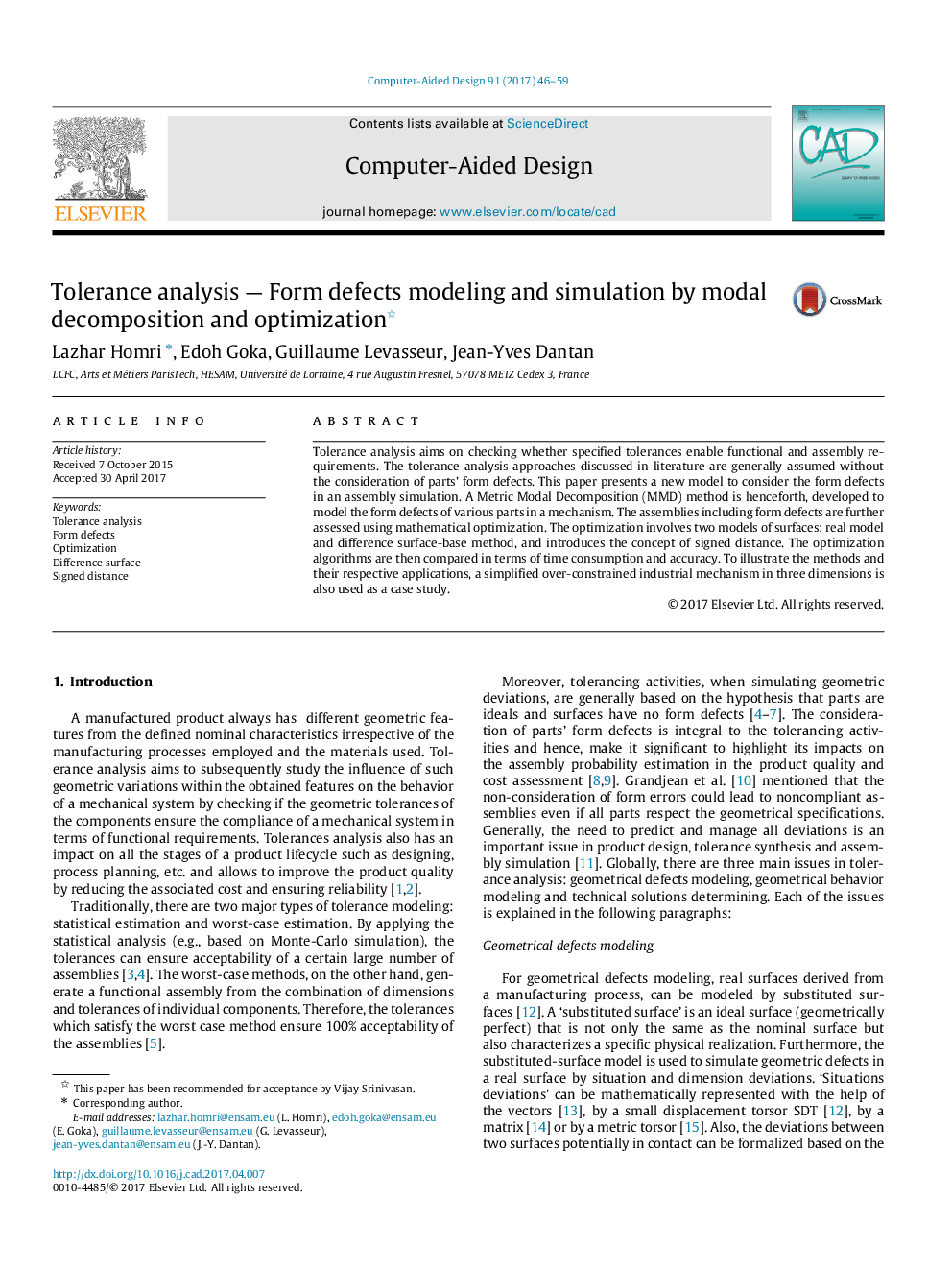| Article ID | Journal | Published Year | Pages | File Type |
|---|---|---|---|---|
| 4952547 | Computer-Aided Design | 2017 | 14 Pages |
Abstract
Tolerance analysis aims on checking whether specified tolerances enable functional and assembly requirements. The tolerance analysis approaches discussed in literature are generally assumed without the consideration of parts' form defects. This paper presents a new model to consider the form defects in an assembly simulation. A Metric Modal Decomposition (MMD) method is henceforth, developed to model the form defects of various parts in a mechanism. The assemblies including form defects are further assessed using mathematical optimization. The optimization involves two models of surfaces: real model and difference surface-base method, and introduces the concept of signed distance. The optimization algorithms are then compared in terms of time consumption and accuracy. To illustrate the methods and their respective applications, a simplified over-constrained industrial mechanism in three dimensions is also used as a case study.
Related Topics
Physical Sciences and Engineering
Computer Science
Computer Graphics and Computer-Aided Design
Authors
Lazhar Homri, Edoh Goka, Guillaume Levasseur, Jean-Yves Dantan,
